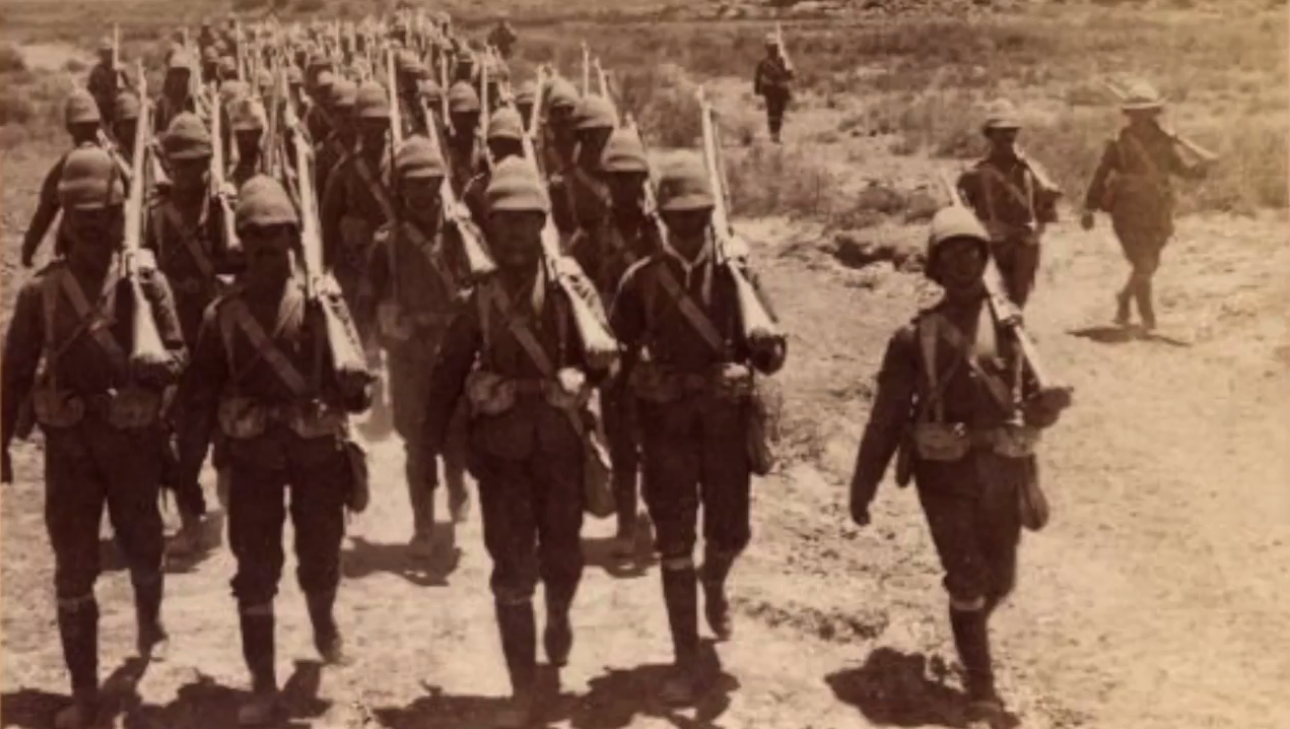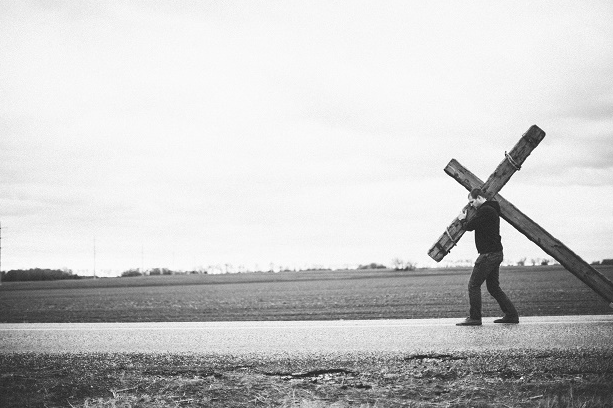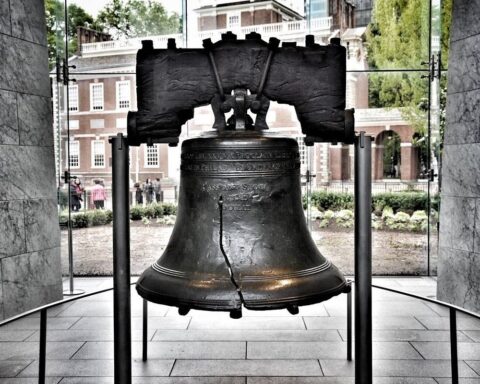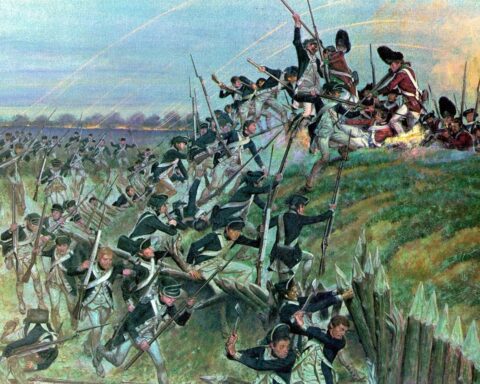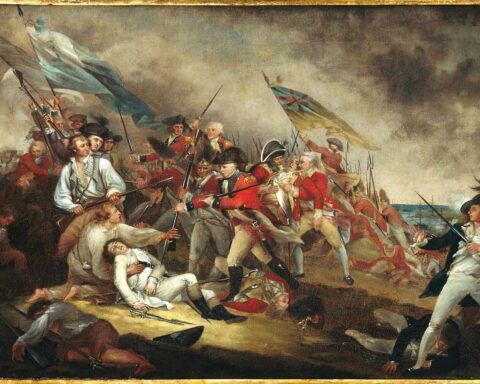Editor’s note: The following classic essay on small unit tactics, by Capt. E. D. Swinton, is extracted from the Journal of the United States Infantry Association, Vol. I, No. 4 (April, 1905). All spelling in the original.
Prologue
Upon an evening after a long and tiring trek, I arrived at Dreamdorp. The local atmosphere, combined with a heavy meal, are responsible for the following nightmare, consisting of a series of dreams. To make the sequence of the whole intelligible, it is necessary to explain that, though the scene of each vision was the same, yet by some curious mental process I had no recollection of the place whatsoever. In each dream the locality was totally new to me, and I had an entirely fresh detachment. Thus I had not the great advantage of working over familiar ground. One thing, and one only, was carried on from dream to dream, and that was the vivid recollection of the general lessons previously learnt. These finally produced success.
The whole series of dreams, however, remained in my memory as a connected whole when I awoke.
____________________________
First Dream
“Any fool can get into a hole.”
—Old Chinese proverb.
“If left to you, for defence make spades.”
—Bridge Maxim.
I felt lonely, and not a little sad, as I stood on the bank of the river near Duffer’s Drift and watched the red dust haze, raised by the southward departing column in the distance, turn slowly into gold as it hung in the afternoon sunlight. It was just three o’clock, and here I was on the banks of the Silliaasvogel river, left behind by my column with a party of fifty N.C.O.’s and men to hold the drift. It was an important ford, because it was the only one across which wheeled traffic could pass for some miles up or down the river.
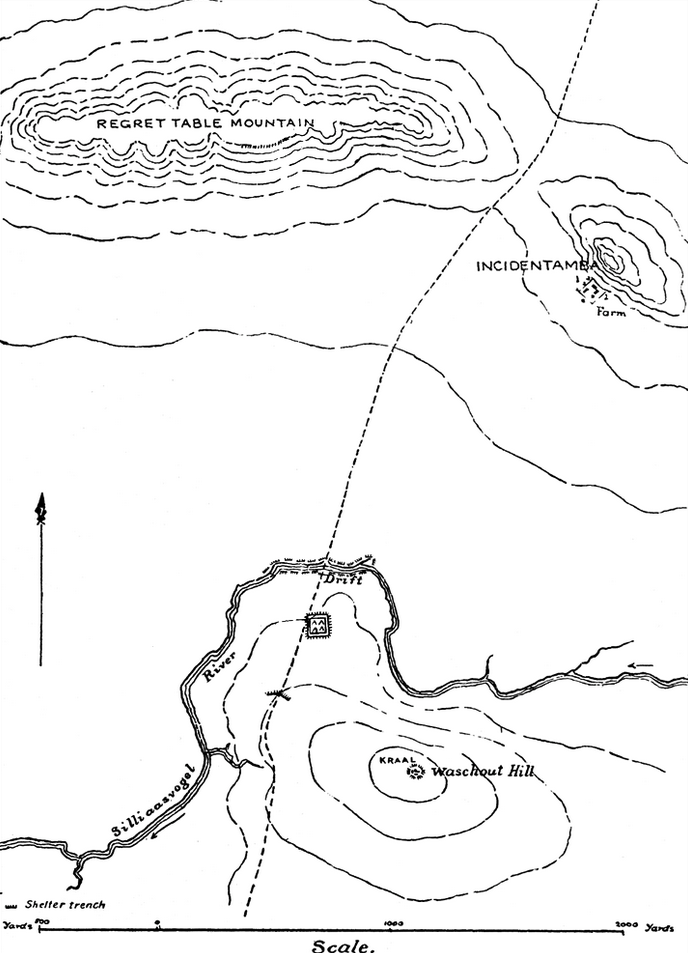
The river was a sluggish stream, not now in flood, crawling along at the very bottom of its bed between steep banks which were almost vertical, or at any rate too steep for wagons everywhere except at the drift itself. The banks from the river edge to their tops and some distance outwards were covered with dense thorn and other bushes, which formed a screen impenetrable to the sight. They were also broken by small ravines and holes, where the earth had been eaten away by the river when in flood, and were consequently very rough.
Some two thousand odd yards north of the drift was a flat-topped, rocky mountain, and about a mile to the northeast appeared the usual sugar-loaf kopje, covered with bushes and boulders—steep on the south, but gently falling to the north; this had a farm on the near side of it. About a thousand yards south of the drift was a convex and smooth hill, somewhat like an inverted basin, sparsely sown with small boulders, and with a Kaffir kraal, consisting of a few grass and mud huts on top. Between the river and the hills on the north the ground consisted of open and almost level veldt; on the south bank the veldt was more undulating, and equally open. The whole place was covered with ant-hills.
My orders were—to hold Duffer’s Drift at all costs. That I should probably be visited by some column within three or four days’ time. That I might possibly be attacked before that time, but that this was very unlikely, as no enemy were known to be within a hundred miles. That the enemy had guns.
It all seemed plain enough except that the true inwardness of the last piece of information did not strike me at the time. Though in company with fifty “good men and true,” it certainly made me feel somewhat lonely and marooned to be left out there comparatively alone on the boundless veldt; but the chance of an attack filled me, and, I am quite sure, my men with martial ardor; and at last here was the chance I had so often longed for. This was my first “show,” my first independent command, and I was determined to carry out my orders to the bitter end. I was young and inexperienced, it is true, but I had passed all my examinations with fair success; my men were a good willing lot, with the traditions of a glorious regiment to uphold, and would, I knew, do all I should require of them. We were also well supplied with ammunition and rations; and had a number of picks, shovels and sandbags, etc., which I confess had been rather forced on me.
As I turned towards my gallant little detachment, visions of a bloody and desperate fight crossed my mind—a fight to the last cartridge, and then an appeal to cold steel, with ultimate victory—and—— But a discreet cough at my elbow brought me back to realities, and warned me that my color-sergeant was waiting for orders.
After a moment’s consideration, I decided to pitch my small camp on a spot just south of the drift, because it was slightly rising ground, which I knew should be chosen for a camp whenever possible. It was, moreover, quite close to the drift, which was also in its favor, for, as everyone knows, if you are told off to guard anything, you mount a guard quite close to it, and place a sentry, if possible, standing on top of it. The place picked out by me also had the river circling round three sides of it in a regular horseshoe bend, which formed a kind of ditch, or, as the book says, “a natural obstacle.” I was indeed lucky to have such an ideal place close at hand; nothing could have been more suitable.
I came to the conclusion that, as the enemy were not within a hundred miles, there would be no need to place the camp in a state of defence till the following day. Besides, the men were tired after their long trek, and it would be quite as much as they could do comfortably to arrange nice and shipshape all the stores and tools, which had been dumped down anyhow in a heap, pitch the camp, and get their teas before dark.
Between you and me, I was really relieved to be able to put off my defensive measures till the morrow, because I was a wee bit puzzled as to what to do. In fact, the more I thought, the more puzzled I grew. The only “measures of defence” I could recall for the moment were, how to tie “a thumb or overhand knot,” and how long it takes to cut down an apple tree of six inches’ diameter. Unluckily neither of these useful facts seemed quite to apply. Now, if they had given me a job like fighting the battle of Waterloo, or Sedan, or Bull Run, I knew all about that, as I had crammed it up and been examined in it, too. I also knew how to take up a position for a division, or even an army corps, but the stupid little subaltern’s game of the defence of a drift with a small detachment was, curiously enough, most perplexing. I had never really considered such a thing. However, in the light of my habitual dealings with army corps, it would, no doubt, be child’s-play after a little thought.
Having issued my immediate orders accordingly, I decided to explore the neighborhood, but was for a moment puzzled as to which direction I should take; for, having no horse, I could not possibly get all round before dark. After a little thought, it flashed across my mind that obviously I should go to the north. The bulk of the enemy being away to the north, that, of course, must be the front. I knew naturally that there must be a front, because in all the schemes I had had to prepare, or the exams I had undergone, there was always a front, or—”the place where the enemies come from.” How often, also, had I not had trouble in getting out of a dull sentry which his “front” and what his “beat” was. The north, then, being my front, the east and west were my flanks, where there might possibly be enemies, and the south was my rear, where naturally there were none.
I settled these knotty points to my satisfaction, and off I trudged, with my field-glasses and, of course, my kodak, directing my steps towards the Dutch farm, with gleaming white walls, nestling under the kopje to the northeast. It was quite a snug little farm for South Africa, surrounded by blue gums and fruit trees. About a quarter of a mile from the farm I was met by the owner, Mr. Andreas Brink, a tame or surrendered Boer farmer, and his two sons, Piet and Gert. Such a nice man, too, with a pleasant face and long beard. He would insist on calling me “captain,” and as any correction might have confused him, I did not think it worth while to make any, and after all I wasn’t so very far from my “company.” The three of them positively bristled with dog’s-eared and dirty passes from every provost marshal in South Africa, which they insisted on showing me. I had not thought of asking for them, and was much impressed; to have so many they must be special men. They escorted me to the farm, where the guid wife and several daughters met us, and gave me a drink of milk, which was most acceptable after my long and dusty trek. The whole family appeared either to speak or to understand English, and we had a very friendly chat, during the course of which I gathered that there were no Boer commandoes anywhere within miles; that the whole family cordially hoped that there never would be again, and that Brink was really a most loyal Briton, and had been much against the war, but had been forced to go on commando with his two sons. Their loyalty was evident, because there was an oleograph of the Queen on the wall, and one of the numerous flappers was playing our National anthem on the harmonium as I entered.
The farmer and the boys took a great interest in all my personal gear, especially a brand-new pair of latest-pattern field-glasses, which they tried with much delight, and many exclamations of “Allermachtig.” They evidently appreciated them extremely, but could not imagine any use for my kodak in war-time, even after I had taken a family group. Funny, simple fellows! They asked and got permission from me to sell milk, eggs, and butter in the camp, and I strolled on my way congratulating myself on the good turn I was thus able to do myself and detachment, none of whom had even smelt such luxuries for weeks.
After an uneventful round, I directed my steps back towards the thin blue threads of smoke, rising vertically in the still air, which alone showed the position of my little post, and as I walked the peacefulness of the whole scene impressed me. The landscape lay bathed in the warm light of the setting sun, whose parting rays tinged most strongly the various heights within view, and the hush of approaching evening was only broken by the distant lowing of oxen, and by the indistinct and cheerful hum of the camp, which gradually grew louder as I approached. I strolled along in quite a pleasant frame of mind, meditating over the rather curious names which Mr. Brink had given me for the surrounding features of the landscape. The kopje above his farm was called Incidentamba, the flat-topped mountain some two miles to the north was called Regret Table Mountain, and the gently rising hill close to the drift on the south of the river was called Waschout Hill. Everything was going on well, and the men were at their teas when I got back. The nice Dutchman, with his apostolic face, and the lanky Piet and Gert, were already there, surrounded by a swarm of men, to whom they were selling their wares at exorbitant rates. The three of them strolled about the camp, showing great interest in everything, asking most intelligent questions about the British forces and the general position of affairs, and seemed really relieved to have a strong British post near. They did not even take offence when some of the rougher men called them “blarsted Dutchmen,” and refused to converse with them, or buy their “skoff.” About dusk they left, with many promises to return with a fresh supply on the morrow.
After writing out my orders for next day—one of which was for digging some trenches round the camp, an operation which I knew my men, as becomes good British soldiers, disliked very much, and regarded as fatigues—I saw the two guards mounted, one at the drift, and the other some little way down the river, each furnishing one sentry on the river bank.
When all had turned in, and the camp was quite silent, it was almost comforting to hear the half-hourly cry of the sentries—”Number one—all is well;” “Number two—all is well.” By this sound I was able to locate them, and knew they were at their proper posts. On going round sentries about midnight, I was pleased to find that they were both alert, and that, as it was a cold night, each guard had built a bonfire, silhouetted in the cheerful blaze of which stood the sentry—a clear-cut monument to all round that here was a British sentry fully on the qui-vive. After impressing them with their orders, the extent of their “beat,” and the direction of their “front,” etc., I turned in. The fires they had built, besides being a comfort to themselves, were also useful to me, because twice during the night when I looked out I could, without leaving my tent, plainly see them at their posts. I finally fell asleep, and dreamt of being decorated with a crossbelt made of V.C.’s and D.S.O.’s and of wearing red tabs all down my back.
____________________________
I was suddenly awoken, about the grey of dawn, by a hoarse cry—”Halt! who goes——” cut short by the unmistakable “plip-plop” of a Mauser rifle. Before I was off my valise, the reports of Mausers rang around the camp from every side; these, mingled with the smack of the bullets as they hit the ground and stripped the “zipzip” of the leaden hail through the tents, and the curses and groans of men who were hit as they lay or stumbled about trying to get out, made a hellish din. There was some wild shooting in return from my men, but it was all over in a moment, and as I managed to wriggle out of my tent the whole place was swarming with bearded men, shooting into the heaving canvas. At that moment I must have been clubbed on the head, for I knew no more until I found myself seated on an empty case having my head, which was dripping with blood, tied up by one of my men.
____________________________
Our losses were ten men killed, including both sentries, and twenty-one wounded; the Boers, one killed and two wounded.
____________________________
Later on, as, at the order of the not ill-natured but very frowzy Boer commandant, I was gloomily taking off the saucy warm spotted waistcoat knitted for me by my sister, I noticed our friends of the previous evening in very animated and friendly conversation with the burghers, and “Pappa” was, curiously enough, carrying a rifle and bandolier and my new field-glasses. He was laughing and pointing towards something lying on the ground, through which he finally put his foot. This, to my horror, I recognized as my unhappy camera. Here, I suppose, my mind must have slightly wandered, for I found myself repeating some Latin lines, once my favorite imposition, but forgotten since my school-days—
“Timeo Danaos et dona ferentes——” [1]
when suddenly the voice of the field cornet broke into my musing with “Your breeches, too, captain.”
____________________________
Trekking all that day on foot, sockless, and in the boots of another, I had much to think of besides my throbbing head. The sight of the long Boer convoy with guns, which had succeeded so easily in crossing the drift I was to have held, was a continual reminder of my failure, and of my responsibility for the dreadful losses to my poor detachment. I gradually gathered from the Boers what I had already partially guessed, namely, that they had been fetched and guided all round our camp by friend Brink, had surrounded it in the dark, crawling about in the bush on the river bank, and had carefully marked down our two poor sentries. These they had at once shot on the alarm being given, and had then rushed the camp from the dense cover on three sides. Towards evening my head got worse, and its rhythmic throbbing seemed gradually to take a meaning, and hammered out the following lessons, the result of much pondering on my failure:
1. Do not put off taking your measures of defence till the morrow, as this is more important than the comfort of your men or the shipshape arrangement of your camp. Choose the position of your camp mainly with reference to your defence.
2. Do not in war-time show stray men of the enemy’s breed all over your camp, be they never so kind and full of butter, and do not be hypnotized, by numerous “passes,” at once to confide in them.
3. Do not let your sentries advertise their position to the whole world, including the enemy, by standing in the full glare of a fire, and making much noise every half hour.
4. Do not, if avoidable, be in tents when bullets are ripping through them: at such times a hole in the ground is worth many tents.
After these lessons had been dinned into my soul millions and millions of times, so that I could never forget them, a strange thing came to pass—there was a kaleidoscopic change. I had another dream.
____________________________
[1] “Beware of Greeks bearing gifts.” [ed.]

